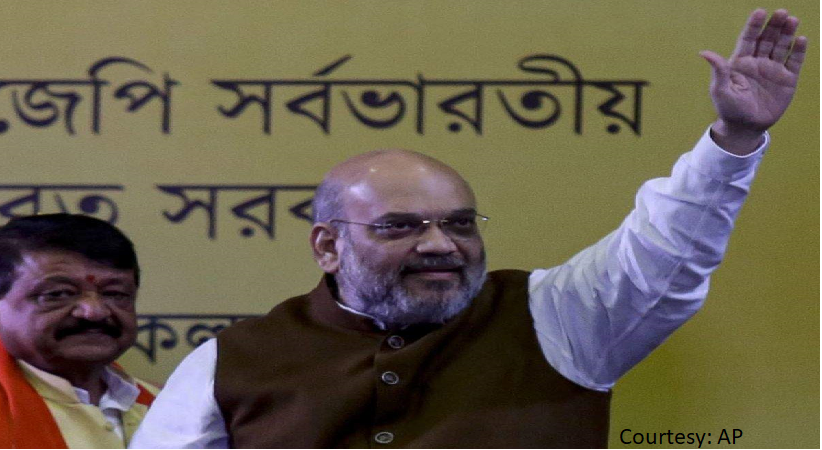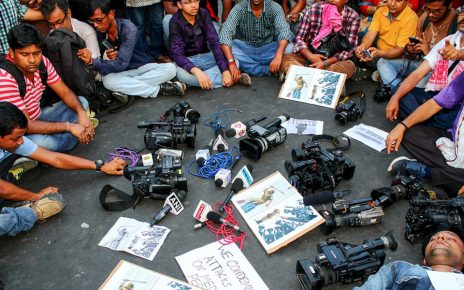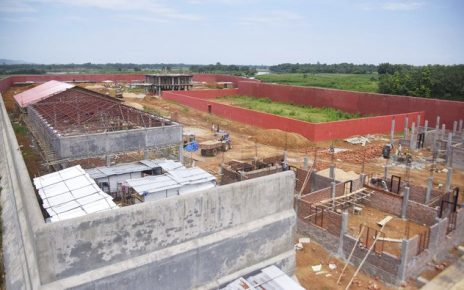NGO Rights and Risks Analysis Group (RRAG) recently said that the proposed Citizenship Amendment Bill will not help the minority communities such as the Gorkhas, Bhojpuri, tea tribes and other scheduled tribes. This was in contrast to the promise …
Available at The Economic Times
Published on 02 November 2019
Guwahati: Countering BJP’s claim that the proposed Citizenship Amendment Bill (CAB) will assist those left out of final National Register of Citizens (NRC), NGO Rights and Risks Analysis Group (RRAG) said that it will not help Gorkhas, Bhojpuri and many indigenous communities.
Suhas Chakma, director of RRAG, said that the CAB will provide citizenship by naturalisation to people belonging to minority communities from Afghanistan, Bangladesh and Pakistan but the Gorkhas, Scheduled Tribes, Bhojpuri, Koch Rajbongshi, Tea Tribes cannot claim to have migrated from these countries and therefore, they are not covered under the CAB.
The Assam government and the Ministry of Home Affairs (MHA) have no policy as to how to resolve their issues, he said.
The final NRC was published on August 31 found a total of 3, 11, 21,004 persons eligible for inclusion in the registry and left out 19, 06,657 persons.
Assam BJP unit president Ranjeet Kumar Dass recently said that bringing CAB has become more pertinent now. He said that the bill will benefit large number of Indians who did not make it to the NRC. BJP has been alleging that not accepting refugee certificate issued prior 1971 has resulted in the exclusion of large number of Bengali Hindu, Koch Rajbonshi and Buddhist people from final NRC.
BJP is planning to place the proposed CAB in the Parliament this month.
Chakma said, “Religious minorities who fled from Afghanistan, Bangladesh and Pakistan are only being fooled with the promise of the CAB. The CAB only reduces the time period for submitting citizenship application from 11years to six years. The situation of the Chakmas and Hajongs, who were settled in Arunachal Pradesh by the government of India after the 1962 Indo-China war, is precarious. Despite Supreme Court orders in 1966 and 2015, not a single citizenship application of Chkmas or Hajongs have been determined.”
He added an overwhelming majority of those excluded from the NRC have submitted their claims under the NRC as citizens of India. Now, if the CAB is enacted and the same people submit application for citizenship under the CAB, claiming themselves as belonging to minority communities from Bangladesh/East Pakistan, it effectively means they had submitted false statements and evidence with the NRC authorities. They will then be open for prosecution for criminal offences like forgery etc.
He added that BJP have proposed to tweak the CAB to provide that the CAB will not override the Bengal Eastern Frontier Regulation (BEFR) of 1873 under which Indian nationals are required to take Inner Line Permit (ILP) for entry into Arunachal Pradesh, Nagaland and Mizoram and the CAB will not be applicable for these States.
“If the CAB is tweaked to exempt the ILP States of Arunachal Pradesh, Mizoram and Nagaland and the Manipur People’s Protection Bill 2018 is given assent, more than 10 lakh people from these States can be identified as illegal residents under the nation-wide NRC following adoption of the CAB and be dumped into Assam which shares the borders with all these States. Assam instead of expelling the alleged foreigners will end up receiving over a million people before 2024,” Chakma stated.
The Bill is aimed at making minority communities such as Hindus, Sikhs, Buddhists, Jains, Parsis and Christians from Afghanistan, Bangladesh and Pakistan eligible to apply for Indian citizenship.



